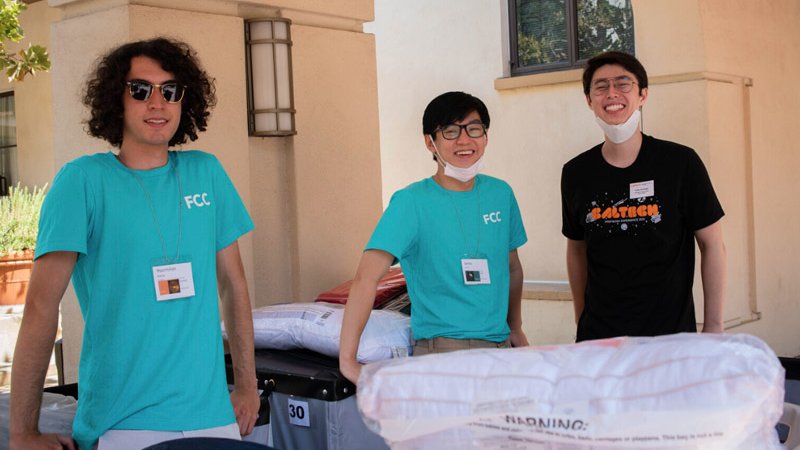Undergrad Scholarships
New fund makes move-in day a bit easier

Whether it’s a long hug at the airport or a tearful goodbye at one of the Caltech houses, the transition to college is emotional. It’s also expensive—and the Richard N. Merkin Start-Up Scholars Grants are easing the burden.
Traditional financial aid supports college tuition and room and board after students arrive on campus. Merkin Start-Up funds kick in earlier. They help students from low-income backgrounds meet the costs of enrolling in college, purchasing academic and dorm supplies, and funding campus visits for admitted students and their parents.
Last spring, the program rolled out its first grants to 82 students. Beneficiaries hailed from as close as the greater Pasadena area to as far away as France and the Middle East. They also included 21 students starting their second year at Caltech (which, due to the pandemic, was actually their first in-person term on campus) as well as two transfer students.
The funds for supplies and transportation "helped relieve a lot of stress for me and my family," says first-year student Michelle Li. "I didn't have to worry about bringing every single thing to campus, or about how I was going to buy it once I got here. Arriving at Caltech was a very smooth transition."
This is exactly what Caltech trustee and philanthropist Richard Merkin, MD, wanted to achieve.
"In an increasingly competitive academic environment, our goal is to remove obstacles for deserving students to help them navigate the admissions process and settle into campus life without having to worry about finances," Merkin says. "The objective is to make sure that all students can take full advantage of their time at Caltech and enjoy a gratifying and exciting start to their academic careers."
Jarrid Whitney, assistant vice president for student affairs, enrollment and career services, says the Merkin Start-Up Scholars Grants are a part of a larger five-year donation Merkin has provided to benefit various campus-based programs aimed at recruiting and enrolling students from historically underrepresented backgrounds. In future years, a portion of the start-up funds may be used to support additional on-campus recruitment programs serving underrepresented students.
This archived content may contain outdated information or references that may not reflect current practices or programs.